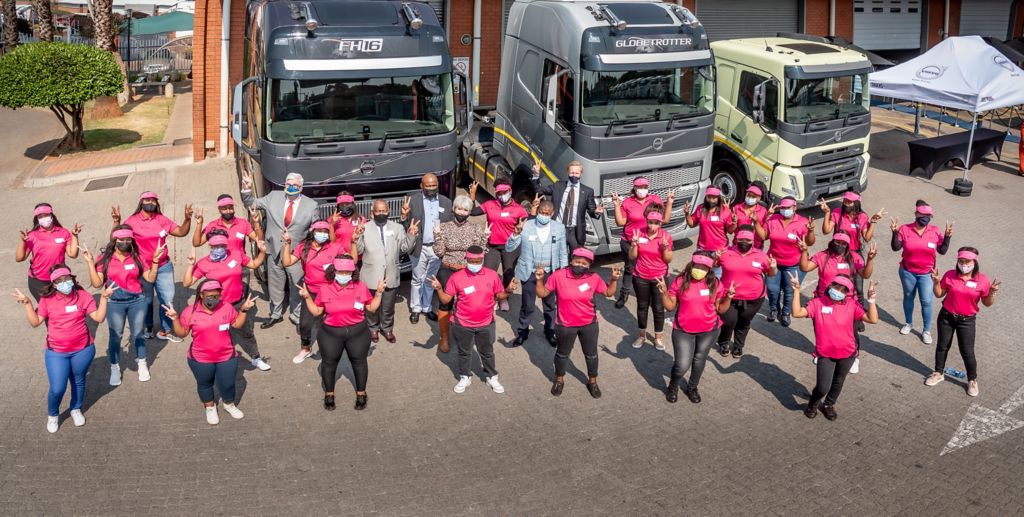Volvo Trucks announces third Iron Women intake


Key stakeholders who attended the event included Swedish Ambassador to South Africa, Håkan Juholt, delegates from the Department of Women, Youth and Persons with Disabilities, and Nicci Scott, Founder of the Commercial Transport Academy that facilitates the drivers’ training.
Iron Women is aimed at enhancing the capacity of professional drivers and to ultimately enable them to contribute to their future employers’ fleet safety, profitability, and efficiency. This qualification, which is approved by the Transport Education Training Authority, is based on both theoretical and practical modules.
To date, 40 women have graduated from the programme.
Marcus Hörberg, vice president of Volvo Group Southern Africa, in his introductory message said the successes of the previous Iron Women instalments have inspired the company to continue the programme, and in the process create real change in society.
“Over the past couple of years, the successful Iron Women candidates have proven their worth and are employed by some of the leading transport and logistics companies in South Africa,” said Hörberg. “We wish our new candidates every success and know they will go on to make a lasting and positive impact on our industry.”
Ambassador Juholt also reiterated the importance of businesses being actively involved in the transformation of a society.
“The Swedish government place a high value on the importance of empowering women, equal rights and economic diversity,” said Juholt. “We are very proud that Volvo Trucks, as a leading Swedish company, continues and builds on this vision here in South Africa.”
Prof H Mkhize, deputy minister of the Department of Women, Youth and Persons with Disabilities, said in her relayed message that according to Statistics South Africa, economic data indicates that the transport, storage, and communication sector contributes 9.3% to South Africa's GDP.
“Whilst transport alone contributes about 6.5% to employment creation in South Africa, women are severely underrepresented in this industry. It is therefore important that we support the establishment of initiatives that will help increase the pool of skilled women drivers in the country,” said Prof Mkhize.
Far-Reaching Impact
Volvo Trucks’ Iron Women programme will also form part of the Women Inspiring Women to Lead in Transport initiative (WIWLT), that will see 120 female professionals, 300 entrepreneurs and 495 truck drivers being trained and mentored over a three-year period.
The initiative led by the Commercial Transport Academy (CTA) is supported by United States Agency for International Development (USAID).
“The reality is that greater participation of women within the sector is important for diversification, yet the last recorded data from StatsSA suggests that women only make up around 17.5% of the working population,” said Nicci Scott, CTA’s Founder. “This reinforces that the sector remains a non-traditional environment for women.”
“Our programme provides an opportunity for greater community upliftment, as we know that when women are developed, empowered, and have access to equal employment opportunities, it increases diversity and equal payment opportunities,” she concluded.